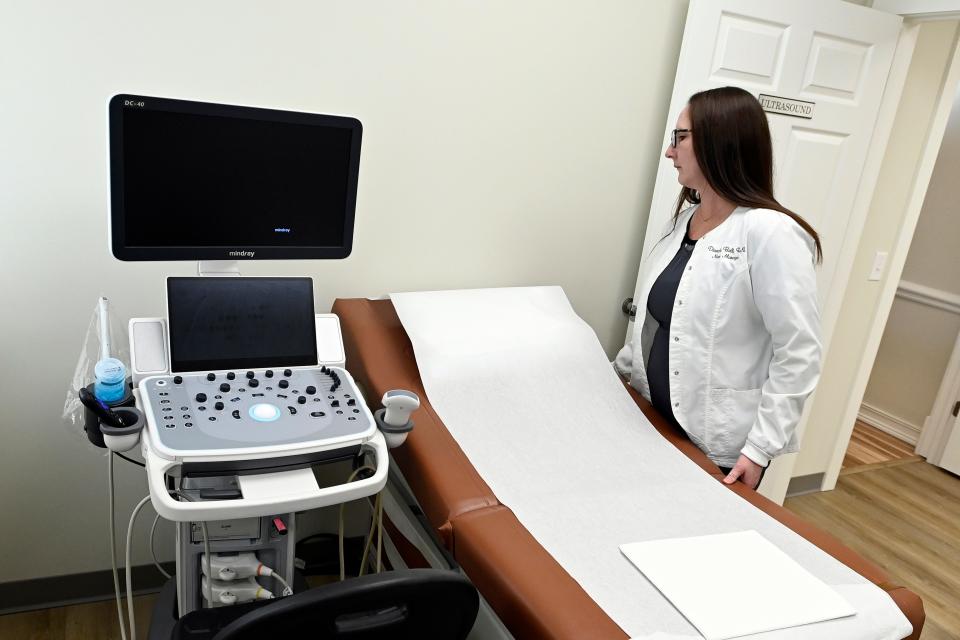Yelp jumps into abortion politics – and hurts women searching for help with pregnancies
Yelp has chosen abortion activism over accuracy in its latest move. The technology company announced last month that it would recategorize pregnancy resource centers and other faith-based medical clinics on their platforms to distinguish them from abortion clinics.
However, the problematic language Yelp has applied mislabels many clinics, introducing doubt and creating confusion in the minds of those seeking help for an unplanned pregnancy.
The company’s decision-making is clearly partisan and runs against Yelp’s own corporate values of telling the truth, treating others with respect and valuing diversity in viewpoints. Yelp is risking the trust of communities and consumers with its new labeling policy.
Yelp's label isn't clear about clinics' work
Under the auspice of providing “reliable information” to users, Yelp placed warnings on such listings by stating that crisis pregnancy centers “typically provide limited medical services and may not have licensed medical professionals onsite,” without attempting to discern the reality of what these clinics might offer or the qualifications of those who work there.
Leaders at Yelp announced these labels as part of their commitment to support “access to reproductive healthcare for our employees, underserved communities, and our users.”
Opinions in your inbox: Get exclusive access to our columnists and the best of our columns every day
These changes came amid growing pressure on tech companies from some government leaders and employees to ensure access to abortion services after this summer’s Supreme Court ruling that overturned Roe v. Wade. But unlike Google’s recent shifts in how pregnancy resource centers and faith-based clinics are displayed on their platforms, Yelp has decided to blanketly apply misleading labels rather than to provide clear and honest information.

Yelp’s poorly thought out system fails to account for the fact that the vast majority of pregnancy resource centers and faith-based clinics do not seek to mislead women, but to educate women with accurate information about all of the options and resources available to them.
Yelp is bowing to political and social pressure to mislead the public away from the lifesaving services of these clinics, continuing the false narrative that abortion is somehow necessary or key to a flourishing life for women.
Red and blue America don't trust each other: And that's driving us dangerously apart
Almost all pregnancy resource centers offer services such as education, peer counseling, material support and parenting classes to support women and families before, during and after an unplanned pregnancy.
In addition, many faith-based clinics offer reproductive health services free of charge to women – including pregnancy testing, ultrasound imaging, sexually transmitted disease testing, well-woman exams and pap testing. For example, Hope Resource Center in Knoxville, Tennessee, carries Yelp’s warning label but has medical professionals on staff who provide a range of care.
Clinics have faced threats and vandalism
These misleading labels simply do not account for the work the clinics actually do but instead promote dangerous rhetoric and disinformation about clinics, which already have faced threats and acts of vandalism throughout our nation.
Opinion alerts: Get columns from your favorite columnists + expert analysis on top issues, delivered straight to your device through the USA TODAY app. Don't have the app? Download it for free from your app store.
Yelp’s labeling of these clinics as “may or may not” having licensed medical professionals could appear to be alerting women and providing information, but in reality, it is introducing doubt and suspicion. This is the opposite of what many clinics do as they indicate from the onset on their engagement with women, whether by phone, text or their website, that they do not offer abortion services.
And in an ironic twist, Yelp also indicates that these labels are designed to inform users that the clinics “typically provide limited medical services” even though abortion clinics, including those that primarily and exclusively offer abortions, do not carry similar labels.
This type of labeling for pregnancy resources centers and faith-based clinics is meant to ensure easy access to abortion while introducing needless friction for obtaining lifesaving information and services.

Combating lack of information with misinformation does nothing to solve the problems we face as a society in the digital public square. Decisions like Yelp’s make navigating questions of digital governance and content moderation even more difficult, given an already hyperpartisan policy debate and the immense power that the technology industry has over our access to information.
At what cost?: To destroy Trump, is it OK to break the rules? We'll pay a high price for doing so.
If Yelp truly wants to serve all people, value a diversity of viewpoints and maintain the trust of the public – not just those who share its ideological or political beliefs – the company must rethink these ill-advised and dangerous policies to ensure that all users have access to reliable and trustworthy information as they make decisions that not only affect women, but also the life of the child in the womb.
Jason Thacker is chair of research in technology ethics and director of the research institute at The Ethics and Religious Liberty Commission of the Southern Baptist Convention. He also is the author of “Following Jesus in a Digital Age."
You can read diverse opinions from our Board of Contributors and other writers on the Opinion front page, on Twitter @usatodayopinion and in our daily Opinion newsletter. To respond to a column, submit a comment to letters@usatoday.com.
This article originally appeared on USA TODAY: Yelp slaps misleading label on pregnancy resource centers

